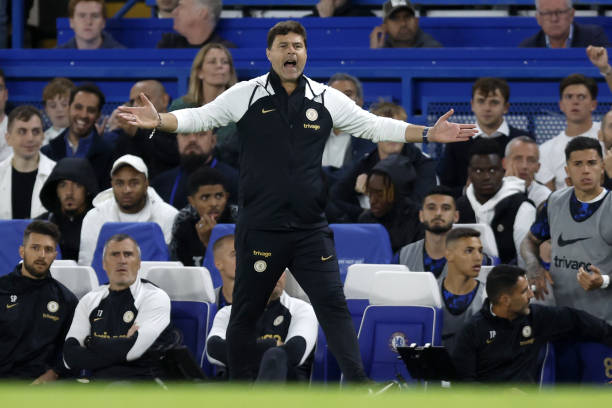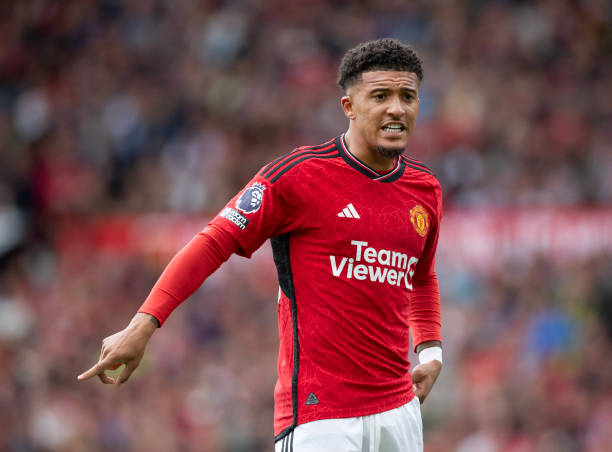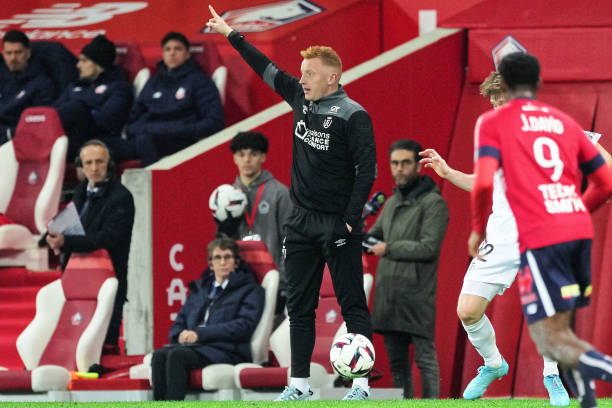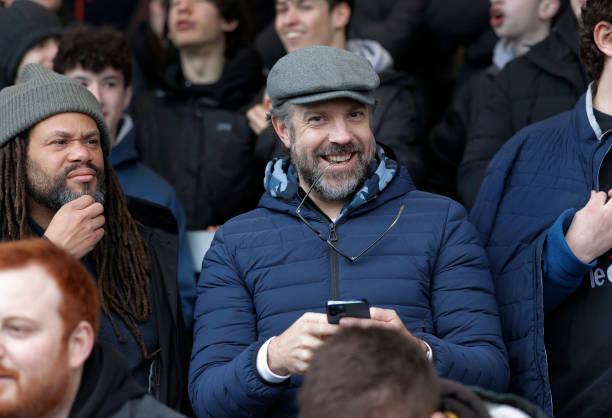Why do professional football clubs have esports teams?
Cast your mind back to the global COVID-19 pandemic if you haven’t already blacked that out of your mind. You may remember a time when ALL sports stopped. Sure, the Belarus football league continued playing, some minor sporting events carried on, and a few smaller counties were able to soldier through the issues until being hit by the coronavirus.
It was an awful time for everyone, which is a massive understatement, as 6.9 million people worldwide lost their lives. Even more people passed away due to complications from the virus. Football fans have seen players dealing with the effects of contracting the illness, including Bayern Munich’s Alphonso Davies, who suffered myocarditis, an inflammatory heart condition.
While traditional sports stopped, the world looked for another way to be entertained. Sports trading cards hit a boom and fans watched hours of sports documentaries. Had it not been for Sunderland ‘til I Die, Rob McElhenney and Ryan Reynolds wouldn’t have purchased Wrexham.
Amid sports fans searching for something to watch, esports suddenly hit the mainstream. For years, esports experts claimed video game tournaments were the future of sports. With tournaments attracting millions of eyeballs, companies within the esports sector continued to bandy about the potential money that esports could make.
The COVID-19 pandemic was the perfect storm for esports to hit the mainstream. Needing something to watch, sports channels began to broadcast various video game-inspired shows. Some broadcasters were already showing esports content, yet the pandemic influenced the channels to do more. Many long-time traditional sports fans couldn’t get into the shows. Most hardcore esports fans preferred to watch gaming courtesy of Twitch, YouTube, and other outlets. The return of traditional sports did something many esports experts didn’t expect, gaming went back into the shadows and out of the mainstream, returning mostly to online outlets.
Yet, esports didn’t go away. The valuations keep going up for the industry. The problem with the valuations of esports is that they change from report to report, with various groups wanting the figures to reflect their importance in the industry. According to gamer data and gaming industry leader, Newzoo, esports “will generate $1.8 billion in revenue by 2022.” Other proponents of esports valued revenue at more than Newzoo’s figure. Regardless, expectations are for the revenues to growth further.
Many professional football clubs saw the esports wave coming years ago. Some clubs signed individual players to contracts to represent them at esports competitions. In May 2016, English Premier League club West Ham United signed Sean ‘Dragonn’ Allen to represent them in FIFA (now EA Sports FC) tournaments. Allen’s deal made him the first gamer to sign for a British club. Allen, 24 at the time, was presented on the pitch of the old Boleyn Ground with a shirt, the No 50, which was worn during FIFA tournaments. Allen was ranked as the best FIFA player when he signed with the Hammers.
Since then, a raft of clubs has either signed esports athletes or created esports teams within their clubs. Turkish giant Besiktas founded its esports department back in 2015. The club purchased the Aces High esports team, merging it with the club. The move made Besiktas the first football club to have an official esports team under their umbrella.
More football clubs from around the world are getting into esports if they haven’t already. Besiktas and West Ham were two of the first clubs to get into the sector, but more teams are adding esports teams and athletes.
London Non-League football club, Hashtag United, was created by YouTuber Spencer Carmichael-Brown, aka Spencer Owen or Spencer FC. The team spawned out of Spencer FC and the semi-professional team will play in the Isthmian League Premier Division next season thanks to winning the North Division last term. The women’s team also earned promotion in 2022-23 by winning the National League Division One South East.
Hashtag United celebrated double promotions having only formed the men’s team in 2016, while the women’s side came together in 2020. The club’s success has led to a kit deal with Danish sports manufacturer Hummel, and some brilliant-looking shirts.
Although Hashtag play in Non-League, the club wouldn’t be where it is today without social media, YouTube, or gaming. The club’s dedicated esports department is “one of the best, and best-known, FIFA esports orgs in the world”. Hashtag aren’t just succeeding on the pitch, they are thriving in other areas as well.
The question many football fans may ask is, why? Why are football clubs worrying about esports and signing players to play video games?
The simplest answer is that video games are a ubiquitous part of life. Video games transcend gender, and people of a certain age enjoy playing video games, whether on their mobile devices or gaming console. Indeed, just commute home from work on any given night, and you are bound to see someone playing a game on their phone. Video games don’t have to be League of Legends, DOTA 2, or EA Sports FC. They can be as simple as mobile games like Flight Control, Among Us, and Gardenscapes.
Football clubs’ reasons for transitioning into esports are more nuanced. Esports is a marketing tool used by football clubs. According to football finance guru Kieran Maguire, esports provide football clubs with brand awareness to a global audience.
“If we take a look at where football clubs do generate money from historically, its broadcasting deals, ticket sales, and commercial,” Maguire said on an episode of the Price of Football podcast. “And those have sort of come to a – not a shuttering halt – but the opportunities for growth are potentially limited.
“By having an esports team and tapping into the Metaverse, the likes of TikTok, Instagram, and so on, there is the opportunity to monetize via streaming. This is an uncertain market, but just because it is uncertain, it doesn’t mean football clubs should avoid it.”
The “traditional” matchday football fans are ageing and clubs want to connect to a younger generation of supporters. Esports is one of the best ways for football clubs to tap into new fans and create long-term supporters. The hope is that clubs will attract new fans to matches thanks to a connection with an esports team or athlete. But seeing live matches isn’t the only desire of clubs. They want fans to buy merchandise, watch their YouTube channels, and buy whatever else the team sells.
Gaming streamer Guy “Dr Disrespect” Beahm controversially tweeted that all esports teams other than the famous FaZe Clan do not make money. The tweet sparked outrage from some in the industry, as well as fans. There are some discrepancies over how teams earn and generate money within the esports sector. With all the hype over esports valuations, it seems that the teams may be the only ones not making money. But that is the trouble with valuations. They are subjective.
The world’s top esports groups have three main revenue streams: apparel, entertainment, and esports. The esports section covers money earned through tournaments, leagues, and partnerships. Football clubs are attempting to tap into the same areas and have the potential to appeal to far more people on a global scale. The global appeal of clubs makes them attractive to esports athletes.
The football our grandparents grew up on, the football our parents grew up on, and the football we grew up on is changing. At one time, the Premier League was seen as a renegade league by football fans. Today, it is the most-watched football league in the world.
The proposed Super League has already split fans, with many “traditional” fans being opposed to it. But younger generations may embrace it. Esports is simply a new way for football clubs to diversify, grow their revenues, and monetize following the stagnation of other areas. Esports is here to stay and one day every football club may have an esports athlete or team under its umbrella. If you founded a club today, it would be one of the best ways to create fans and grow.

Must See
-


Champions League
/ 8 months agoChampions League – Matchday 2
Almost in the blink of an eye we reached the second day of the...
-


Premier League
/ 8 months agoThe bad start for Poch’s Chelsea
Since Todd Boehly’s arrival as club owner in the summer of 2022, Chelsea have...
-


Premier League
/ 8 months agoJadon Sancho’s feud with Erik Ten Hag continues
Manchester United winger Jadon Sancho’s time at Old Trafford has been torrid, to say...



